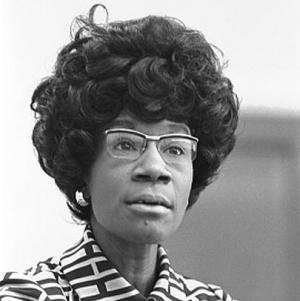“The Decolonised incog-Negro Coconut feminist speaks!”
Yvonne Apiyo Brändle-Amolo
The talk took place at Migros Museum für Gegenwartskunst in Zurich in June 2018 as part of the international symposium “Affidamento – Creating Feminist Solidarity in Art and Curating”. The meeting is the point of exchange across institutions to rethink a politics of care and support against the persisting patriarchal structures. The term ‘affidamento’ comes from Italian which means ‘trust, confidence or to confide in one another’, and was extensively used by an Italian group of women at the Libreria delle donne in Milan (an association of female/ feminist philosophers, called Diotima). As scholar Silvia Federici argues, the rise of capitalism goes hand in hand with the oppression of women, the devaluation of reproductive work and practices of communality. The symposium asks: how can we think about new ways to create feminist solidarity in art and curating today? The meeting is part of a series on feminist issues, initiated by Lara Perry, Elke Krasny, Helena Reckitt and Dorothee Richter, and is supported by Heike Munder, Alena Nawrotzki, Max Heinrich and Johanna Bruckner.
Yvonne Apiyo Brändle-Amolo is an activist, intercultural mediator and political representative of the left-wing migrant society in Kanton Zurich. She works with refugees and founded an NGO with the aim to sensibilize against female mutilations in Africa. As an artist, she has exhibited her work at the Kenyan Pavilion at the Venice Biennale (2015) . She is known for her Swiss traditional dance and yodeling skills and won several prizes for her viral video “Not Swiss-Made” questioning identity politics. At the Migros Museum symposium, she presented a talk about representations and the stakes of being a black feminisit in Switzerland as well as in Africa. She gives a few references in the talk that we are highlighted here:
- “The Decolonised incog-Negro Coconut speaks” referes to the act of empowering the incognito, underrated, accultured diaspora black female. It refers to giving the tools to create a safe space where the constrictions placed on the black female body can be torn down or transcoded.
![]()
- Givens and Monahan (2005) declare that some stereotypes, in particular in relation to the Black woman, have been activated so frequently through various channels that they occur nonconscious or acquired - meaning that the acceptance of a stereotype by the stereotyped group member only influences and reinforces the way one is perceived.
-
“Black skins, white masks” (1952) by Frantz Fanon: an important book for black culture and the postcolonial discourse that outlines how dehumanizing and segregating were the effects of colonisation on the colonised as well as on the coloniser: “both the black man, slave to his inferiority and the white man, slave to his superiority, behave along neurotic lines” - which reinforces the idea of ‘alienation’ from both sides, i.e. positive racism (acquiring a positive social status for a black woman to marry a white man). Despite the relevance of the book, there is still an issue in female representation as only one chapter speaks about the black woman’s conditions - and the chapter doesn’t put women in accurate light for the nowadays’ discourse.
![]()
-
“We Should All Be Feminists” by Chimamanda Ngozi Adiche is quoted with a sentence that sheds light on feminism not being well-perceived in Africa: “We teach girls to shrink themselves, to make themselves smaller. We say to girls, you can have ambition, but not too much. You should aim to be successful, but not too successful. Otherwise, you would threaten the man.”
![]()
- “The Tragic Mulatto” myth is about being “bi-racial” [Wikipedia writes: The tragic mulatto is a stereotypical fictional character that appeared in American literature during the 19th and 20th centuries, from the 1840s. The "tragic mulatto" is an archetypical mixed-race person, who is assumed to fail to completely fit in the "white world" or the "black world".]
-
“Representation: Cultural Representations and Signifying Process” (1997) by Stuart Hall where “transcoding” is defined as the process of taking a negative and existing meaning and re-appropriating into a ‘newer’, more positive meaning: “the reduction, essentialization and naturalization of ‘difference’ fixing as the accepted methodology” and “Fetishism, involve disavowal as the strategy by means of which a powerful fascination or desire is both indulged and at the same time denied. It is where what has been tabooed nevertheless manages to find a displaced form of representation”.
![]()
-
“Changing the Narrative: Cultural Pluralism” by Cécilia Kyenge, an Italian politician and member of the European Parliament speaks about "transcoding" (the process of shifting meanings in racist codes, to change the narrative to plural narratives). For instance, people started throwing bananas at her during a speech, to whom she responded on Twitter that it was a shame and a waste considering there are still so many poor countries that don’t have enough food. A method to stick away from racial stereotypes.
![]()
-
Shirley Chisholm, a well-known Black Congresswoman in the history of the USA in the 70s, is quoted with: “You don’t make progress by standing on the sidelines, whimpering and complaining. You make progress by implementing ideas"
![]()
-
Youtube video: Stereotypes are still very much rooted in rural Switzerland, especially at traditional yodeling events in St-Gallen:
![]()
- Events and Black feminist gatherings organized in Zurich:
- Feministischer Salon at Kosmos, Zurich
- Karamell Melting Point, at the OnCurating Project Space, Zurich






